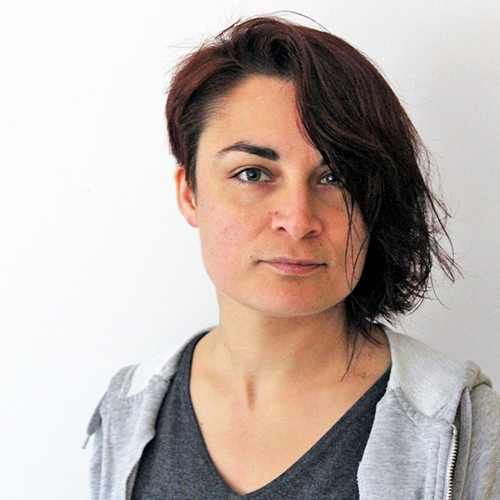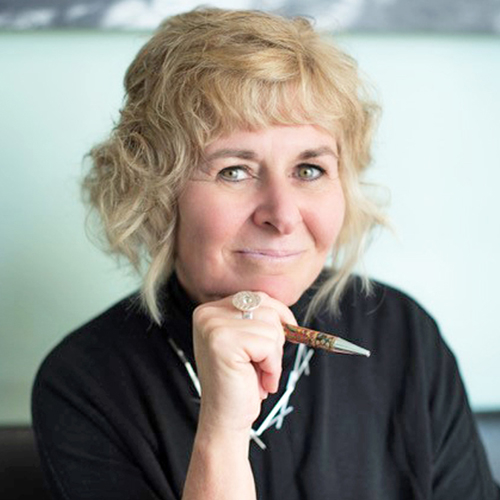 Stress & Child Development Online Course(s) & Continuing Education
Stress & Child Development Online Course(s) & Continuing Education
Access the latest clinical skills and research for Stress & Child Development for INFANT & CHILD HEALTH & DEVELOPMENT professional training. These Stress & Child Development online courses provide practice-changing skills and valuable perspectives from leading global experts. This Stress & Child Development education has been accredited for a variety of CEUs / CERPs and can be accessed on-demand, at your own pace.

Babies Cry to Communicate, Not to Manipulate... Non-Medical Reasons for Crying: An Anthropological Approach

Katrien Nauwelaerts graduated as a prehistoric archaeologist in 2005. She's the mother of three breastfed children and the administrator of the Dutch breastfeeding-website Borstvoeding Aardig, https://borstvoeding.aardig.be. Katrien worked as a volunteer breastfeeding-counsellor, provincial coordinator and training manager for the Belgian breastfeeding organisation Borstvoeding vzw between 2010-2014. Up tot 2018 she was the founder and president of Aardig Leven vzw, a non profit ecological organisation. In 2013 she became an IBCLC. Since 2013 she's working as a lactation consultant at her own private practice Borstvoeding Aardig. She became a nutritionist and a herborist in 2014. Katrien shares her experiences and knowledge on lactation consulting as a public speaker since 2014.
Topic: Breastfeeding and The Use Of Herbs - [View Abstract]
Topic: Young Mothers and Breastfeeding in Belgium - [View Abstract]
There is scientific research that says that breastfeeding duration shortens when parents experience their baby as a baby who cries a lot.
There are all kinds of medical reasons why a baby is crying. Crying is a way of communication for a baby. It's a cry for help.
But what if there are no obvious medical reasons for a baby's crying behavior?
This lecture explains sociological and anthropological factors that can influence crying behavior in babies.
Sometimes parents have false expectations about parenting and baby behavior. Sometimes cultural assumptions make parents believe they have a crying baby when they actually haven't. And some cultural or anthropological parameters can strengthen the crying behaviour in a baby. Learn more about normal newborn crying behaviour and how to help parents understand their newborn.

View Details / Enroll


Dr. Hawes provides clinical services in the Neonatal Intensive Care Unit and at the Perinatal and Postpartum Clinic at the Center for Children and Families at Women & Infants Hospital, where she treats women and their partners experiencing perinatal mood and anxiety issues. Treatment includes individual and family psychotherapy. She is an assistant professor (adjunct) in the Department of Pediatrics at The Warren Alpert Medical School of Brown University. She trained in adult psychiatry and mental health at the University of Rhode Island and is board certified in adult psychiatric-mental health advanced practice nursing. Her research, clinical work, and lectures focus on stress and trauma related to the premature birth experience. In addition she studies the relationship between nursing practice and parent and infant outcomes; nurse-patient interaction; the healthcare work environment and provider and patient outcomes; and the epigenetics of stress. (https://vivo.brown.edu/display/khawes).
Classic animal studies have shown that maternal care of rat mothers e.g. licking and grooming and arched back nursing, impacts offspring outcomes such as behavior, development, and stress regulation. These outcomes persist over subsequent generations. Epigenetics, the study of how environmental influences affect gene expression, mediates these effects. In this session we will discuss and explore how similar epigenetic mechanisms in humans possibly relate to the protective effects of breastfeeding and maternal tactile stimulation on infant stress reactivity.

View Details / Enroll


Kim Barthel is an award-winning occupational therapist, trans-disciplinary teacher and best-selling author who is actively supporting function and healing in many cultures. A pioneer in reinforcing the importance of relationship, Kim’s passionate interests include complex behaviour, attachment, sensory processing, trauma-sensitive practice, Neuro-Developmental Treatment and mental health. Kim’s mission is to support the conscious evolution of the human spirit. www.kimbarthel.ca
This session invites early childhood professionals to learn more about the science of infant development, particularly the impact that early trauma and stress can have on the brain, behaviour, learning and relationships throughout the lifespan. Attachment, attunement, co-regulation, sensory processing and creating optimal interpersonal relationships between infants and caregivers are highlighted. While an infant may inherit challenges trans-generationally, from developmental disability, from an early life event or a chaotic home, how their closest caregivers interact with them has direct and significant impact on their well-being both mentally and physically. Enhancing trauma-sensitive caregiving in the earliest years is critical as a foundation for children to become their best selves.










